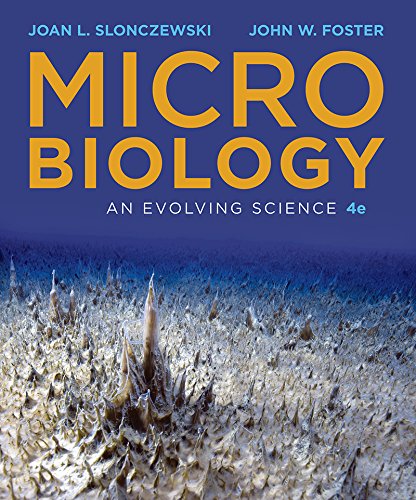Microbiology: An Evolving Science 4th Edition Test Bank
Digital item No Waiting Time Instant DownloadChapters: 28Format: PDFISBN-13: 978-0393614039ISBN-10: 0393614034Publisher: W. W. Norton & CompanyAuthors: John W. Foster, Joan L. Slonczewski
In Stock
Original price was: $55.00.$19.50Current price is: $19.50.
Microbiology: An Evolving Science 4th Edition Test Bank
Microbiology: An Evolving Science, 4th Edition – Test Bank
Overview: The test bank for “Microbiology: An Evolving Science,” 4th Edition, authored by Patricia T. Murphy, Joan L. Slonczewski, and John W. Foster, is a comprehensive resource designed to assist students and educators in mastering the principles of microbiology. This edition reflects the latest advances in the field and provides a robust set of questions to assess understanding and application of microbiological concepts.
Key Features:
- Extensive Coverage:
- The test bank includes questions covering all chapters of the textbook, addressing a wide range of topics in microbiology. This ensures that students receive thorough assessment on fundamental and advanced concepts.
- Diverse Question Formats:
- It features multiple-choice questions, true/false questions, fill-in-the-blank questions, and case studies. This variety allows for comprehensive evaluation of both theoretical knowledge and practical application.
- Current Advances:
- Reflecting the latest advances in microbiology, the test bank includes questions on recent research, emerging pathogens, and updated treatment methods. This ensures that students are familiar with current trends and innovations in the field.
- Clinical Relevance:
- Many questions are designed around clinical scenarios and real-world applications of microbiological principles. This approach helps students apply their knowledge to practical situations, enhancing their problem-solving skills.
- Alignment with Learning Objectives:
- Each question aligns with the learning objectives outlined in the textbook, ensuring that the test bank provides relevant assessments that reflect key concepts and learning goals.
- Critical Thinking Focus:
- The test bank emphasizes critical thinking, requiring students to analyze complex scenarios, interpret data, and make informed decisions based on microbiological principles.
- Customizable Assessments:
- Educators can use the test bank to create customized quizzes, exams, and practice tests tailored to specific course requirements. This flexibility supports targeted assessment and feedback.
Content Breakdown:
- Microbial Diversity and Classification:
- Questions cover the classification of microorganisms, including bacteria, viruses, fungi, and protozoa. Students are tested on the characteristics, taxonomy, and evolutionary relationships of different microbial groups.
- Microbial Physiology and Metabolism:
- The test bank includes questions on microbial physiology, metabolism, and growth. This includes the biochemical processes, energy production, and nutritional requirements of various microorganisms.
- Microbial Genetics:
- Questions focus on microbial genetics, including DNA replication, gene expression, mutation, and genetic transfer mechanisms. Understanding these concepts is crucial for grasping microbial behavior and adaptation.
- Immunology and Host-Microbe Interactions:
- The test bank addresses the principles of immunology, including the immune response, immunological techniques, and host-microbe interactions. Questions explore how microorganisms interact with and evade the host’s immune system.
- Pathogenic Microbiology:
- Questions cover pathogenic microorganisms, their mechanisms of disease, and the diseases they cause. This includes studying specific pathogens, their virulence factors, and disease processes.
- Clinical Microbiology and Diagnostics:
- The test bank includes questions on diagnostic techniques and laboratory procedures used in clinical microbiology. This includes culturing, staining, and molecular methods for identifying microorganisms.
- Environmental and Industrial Microbiology:
- Questions address the role of microorganisms in environmental and industrial contexts, including bioremediation, fermentation, and biotechnology applications.
- Antimicrobial Agents and Resistance:
- Questions focus on antimicrobial agents, their mechanisms of action, and the issue of antimicrobial resistance. Students are tested on drug classes, treatment strategies, and resistance mechanisms.
- Public Health and Epidemiology:
- The test bank includes questions on public health issues related to microbiology, including disease transmission, epidemiology, and infection control measures. This emphasizes the impact of microbiology on global health.
Practical Applications:
- For Students:
- The test bank is a valuable resource for students studying microbiology, helping them prepare for exams and enhance their understanding of key concepts. It provides practice in applying knowledge to clinical and real-world scenarios.
- For Educators:
- Instructors can use the test bank to create comprehensive assessments that align with course objectives, providing a structured way to evaluate students’ knowledge and understanding of microbiological principles.
- For Practicing Professionals:
- Microbiologists and healthcare professionals can use the test bank to review and update their knowledge, stay current with advances in the field, and prepare for certification or continuing education.
Conclusion:
The “Microbiology: An Evolving Science, 4th Edition” test bank is an essential tool for students, educators, and professionals in the field of microbiology. It offers a comprehensive assessment of key concepts, clinical scenarios, and practical skills related to microbiology, with a focus on current research and evidence-based practices. By providing a variety of question formats and covering a broad range of topics, this test bank helps ensure that individuals are well-prepared for both academic and professional challenges in microbiology.


Reviews
There are no reviews yet.